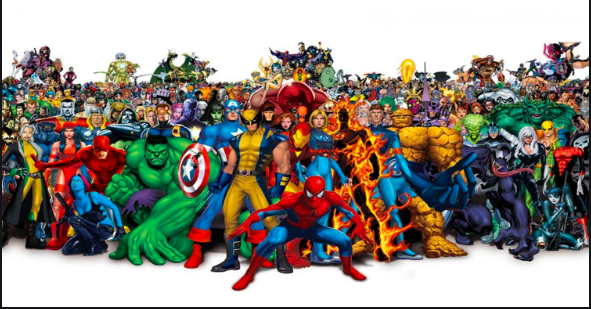20 July - 26 July
Section outline
-

EXPLORE / TŪHURA learning intentions:
- We are EXPLORING the characteristics of superhero film genre by analysing the techniques used in these film
- We are EXPLORING the nature of superhero film genre by researching the codes and conventions of this genre
- We are EXPLORING the audience appeal of the superhero film genre by recognising that the demographics of the audience of these films is changing
- We are EXPLORING the impact of superhero film genre by classifying the historical / political context the backstory used in these film
- We are EXPLORING the success and transition of superhero film genre by conceptualising the realm of these film in popular cinema
Success Criteria - WALT:
- Identify codes and conventions of a superhero film genre
- Define genre
- Explain the impact of codes and conventions as applied to superhero film genre
Genre Definition: - Genre is a loose category or classification of a media product e.g. film. Genre acts as useful shorthand for producers, for whom it helps to generate profit and for audiences to who it provides pleasure. It helps audiences know in advance what to expect of the product and many become fans of certain genres.
The word ‘genre’ comes from the French work meaning ‘type’ or ‘class’. Media genres appear within a medium (film, television) such as the “horror” film or television “situation comedy.”
Codes and Conventions
A genre can be recognised by its common set of distinguishing features (see discussion on codes and conventions). These features associated with a genre’s style and content may be, for example, a particular setting, character types. Technical codes (lighting or music). You may find that some media texts blur genre boundaries. Audiences recognise these features and therefore expect certain things. For example, at the end of a romantic comedy film the two lead characters will realise they are in love. Audiences may even select a text on the basis of its genre. Producers market texts according to genre because a niche audience has already been identified as taking pleasure in that type of text. However, a genre is not static – it changes all the time – resulting in hybrid (or sub-genres) and changing codes and conventions. There is also a relationship between genres and the societies in which they are created.
